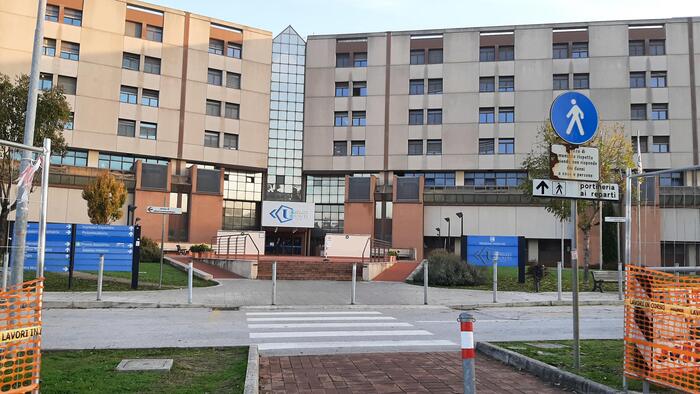Overpriced mask deals and incorrectly reported intensive capacities: The Ministry of Health comes under fire.
The Federal Audit Office publishes a spicy report.
Bonn - There are serious allegations that the Federal Audit Office directed towards the Ministry of Health and Jens Spahn.
The BRH criticizes excessive corona spending and demands stricter controls in view of "massive overcompensation from tax funds".
Health Minister Spahn comes under fire.
Corona: Federal Audit Office finds - pharmacies benefited from masks that are significantly too expensive
On Wednesday (June 9), the Federal Audit Office presented its first comprehensive report on the federal government's Corona expenditure to the Bundestag's budget committee.
NDR and WDR first reported on the internal paper.
The two main criticisms of the Ministry of Health relate to the billing of masks and inconsistencies in intensive care beds.
Spahn is confronted with the accusation that pharmacies have profited excessively from FFP2 masks *.
A total of 2.1 billion euros went to the pharmacists for the masks.
The prices were completely overpriced.
The pharmacists initially received six euros per mask, and then 3.90 euros from February 2021 - even though there were certified FFP2 masks for an average of 1.62 euros and sometimes even less than 1 euros.
Corona: Funding of intensive care beds - 686 million euros within one year
Compensation contributions paid to Germany's clinics during the pandemic * were also checked.
There was “massive overcompensation from tax revenues” in compensation payments for hospitals.
The clinics received money for postponed or suspended scheduled recordings in order to create free capacity for Covid patients.
The federal government's compensation payments would have amounted to 10.2 billion euros in 2020 alone.
And for patient treatment, the clinics would have received 1.3 billion more from the statutory health insurances in 2020 than in the previous year - although the beds were almost eight percent less occupied at the time.
The auditors had also examined the funding for the construction of new intensive care beds: Within one year, around 686 million euros flowed up to the beginning of March.
The Court of Auditors complained that the Ministry of Health could not give the number of beds actually installed and additionally purchased.
The Federal Audit Office is an independent federal body whose tasks are already anchored in the Basic Law.
The Federal Audit Office, whose members are judicially independent, audits the accounts as well as the economic efficiency and correctness of the budget and economic management of the federal government.
Article 114 of the Basic Law
Corona: Did German clinics consciously report wrong numbers for intensive care beds?
The BRH is particularly urging the payments with which the federal government reimbursed the hospitals for additional intensive care beds. The Federal Ministry of Health is "up to now not in a position to reliably determine the number of intensive care beds actually set up as well as the number of additionally purchased intensive care beds," criticize the auditors. This threatened "unwanted deadweight effects". This is "not justifiable".
The presumed consequence: Several German clinics apparently deliberately reported fewer free intensive care beds than in reality, in order to receive financial support from the federal government.
This development could have benefited a legislative amendment from November 2020. According to this, money will only flow if a maximum of 25 percent of the intensive care beds are free.
Specifically: "If the proportion of free intensive care treatment capacities (...) in an uninterrupted period of seven days is below 25 percent on average, the state authority responsible for hospital planning can determine hospitals (...) to make the compensation payments (...) received. "(§ 21 Abs. 1a KHG).
Coronavirus: Spahn in focus - RKI apparently reported observations as early as January
The criticism of Health Minister Jens Spahn is meanwhile louder - especially from the opposition. Spicy: Apparently, the Robert Koch Institute * pointed out the inconsistencies to the Ministry of Health in January: According to the Federal Audit Office, the RKI “assumed that hospitals reported fewer intensive care treatment places than were actually available.” At the request of Merkur.de * The RKI has not yet commented on this. The shortage in German intensive care units, along with other factors such as the incidence value, is repeatedly used as a justification for corona measures.
Spahn and the BMG meanwhile admit excessive payments, but also defend their actions. As far as the reimbursement for the intensive care beds is concerned, the CDU politician * referred to the decision of the federal and state governments to double the number of these beds because of the pandemic. The federal states would now have to “provide evidence of the beds created,” he demanded.
Spahn described the criticism of the Federal Audit Office as "helpful" when it came to the question of how the government was dealing with future pandemics. For example, it is clear that his company needs “stronger operational units” for future emergencies. In a statement cited in the report, the Ministry of Health admitted that there could have been overcompensation for hospitals - but “at most” until an adjustment regulation in July 2020. A request from Merkur.de * has so far remained unanswered.
(as) * Merkur.de is an offer from IPPEN.MEDIA













